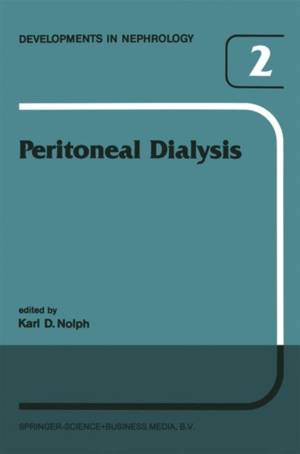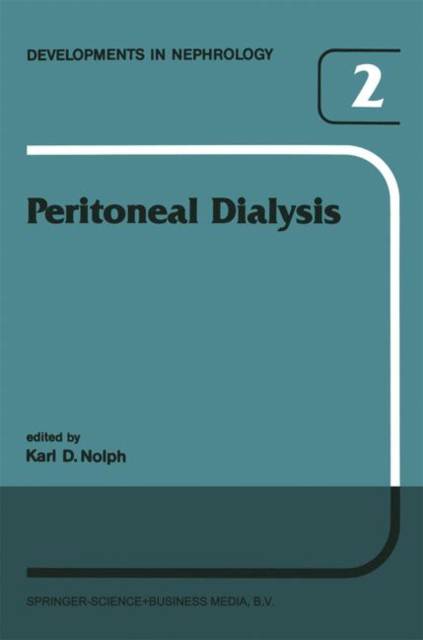
Bedankt voor het vertrouwen het afgelopen jaar! Om jou te bedanken bieden we GRATIS verzending (in België) aan op alles gedurende de hele maand januari.
- Afhalen na 1 uur in een winkel met voorraad
- In januari gratis thuislevering in België
- Ruim aanbod met 7 miljoen producten
Bedankt voor het vertrouwen het afgelopen jaar! Om jou te bedanken bieden we GRATIS verzending (in België) aan op alles gedurende de hele maand januari.
- Afhalen na 1 uur in een winkel met voorraad
- In januari gratis thuislevering in België
- Ruim aanbod met 7 miljoen producten
Zoeken
Omschrijving
A year or so after Dr. Robert Popovieh arrived in Seattle in 1965 to begin working on his doctoral thesis under Dr. A.L. Babb, we had just begun work to try to prove the prediction that the peritoneum had a higher permeability to 'middle molecules' than hemodialysis membranes [I]. Several years later, when Dr. Popovieh accepted a position at the University of Texas in Austin, he decided to concentrate his research efforts in the area of peritoneal dialysis and everyone knows how successful that effort has become [2]. Indeed, because of continuous ambulatory peritoneal dialysis (CAPD), long-term per- itoneal dialysis after a two-decade incubation period is finally becoming an equal option to hemodialysis and transplantation in the management of chronic renal failure. For me this development represents final vindication of a twenty-year effort to help promote peritoneal dialysis, often in the face of enormaus opposition. I particularly remember a policy meeting at the NIH a few years back in which it was decided by my colleagues on the committee that long term peritoneal dialysis had no future and therefore no funds for projects in this area would be forthcoming. Based on the excellent results that Boen and later Tenckhoff had been getting in our Seattle program, I knew the committee was wrong and tried to convince them otherwise. Naturally, being the only favorable vote, I failed. I often wonder how many years this decision and others like it set back peritoneal dialysis.
Specificaties
Betrokkenen
- Uitgeverij:
Inhoud
- Aantal bladzijden:
- 393
- Taal:
- Engels
- Reeks:
- Reeksnummer:
- nr. 2
Eigenschappen
- Productcode (EAN):
- 9789401725651
- Verschijningsdatum:
- 21/04/2014
- Uitvoering:
- Paperback
- Formaat:
- Trade paperback (VS)
- Afmetingen:
- 156 mm x 234 mm
- Gewicht:
- 576 g

Alleen bij Standaard Boekhandel
+ 290 punten op je klantenkaart van Standaard Boekhandel
Beoordelingen
We publiceren alleen reviews die voldoen aan de voorwaarden voor reviews. Bekijk onze voorwaarden voor reviews.








